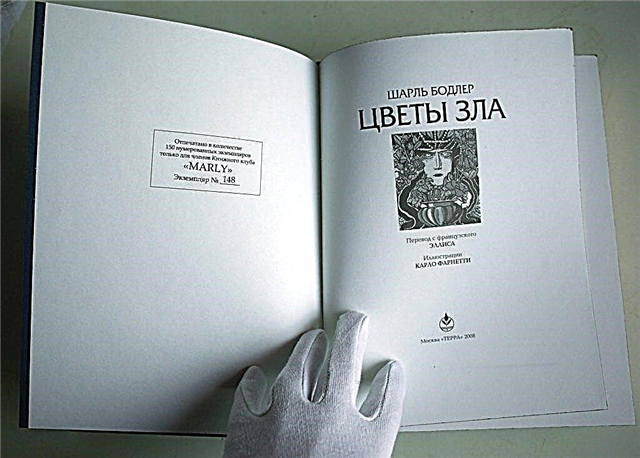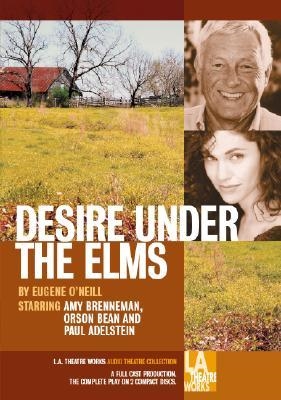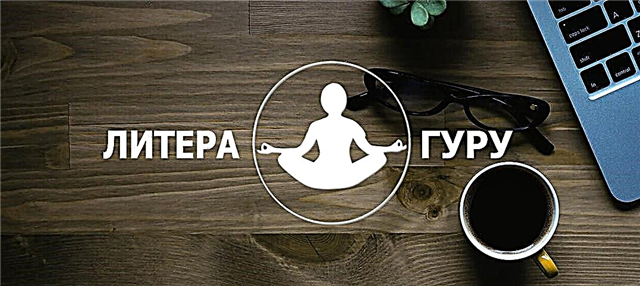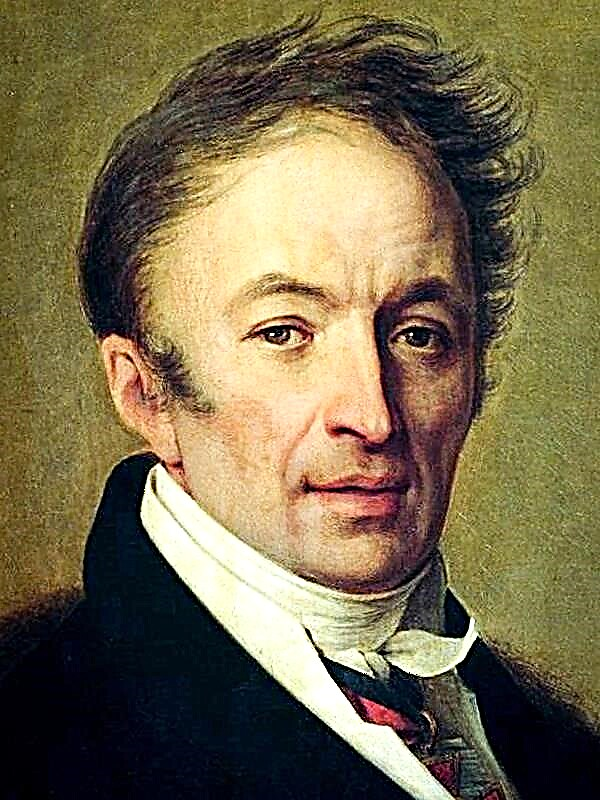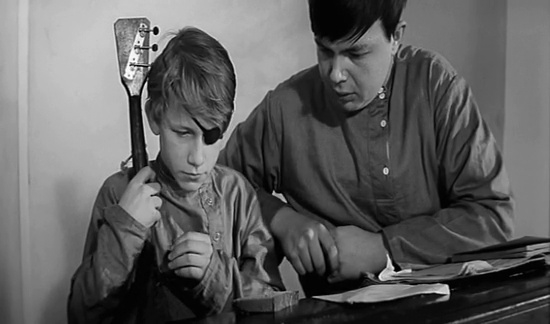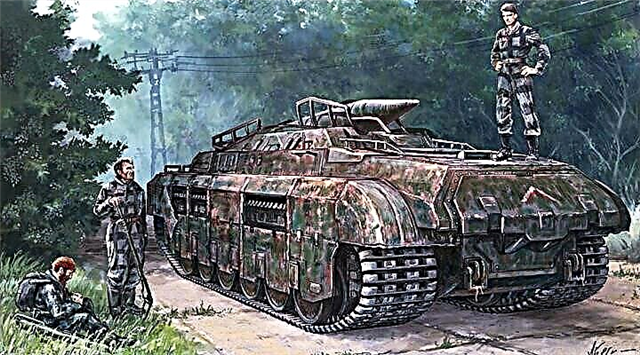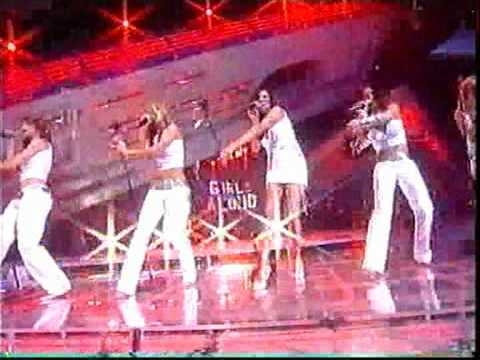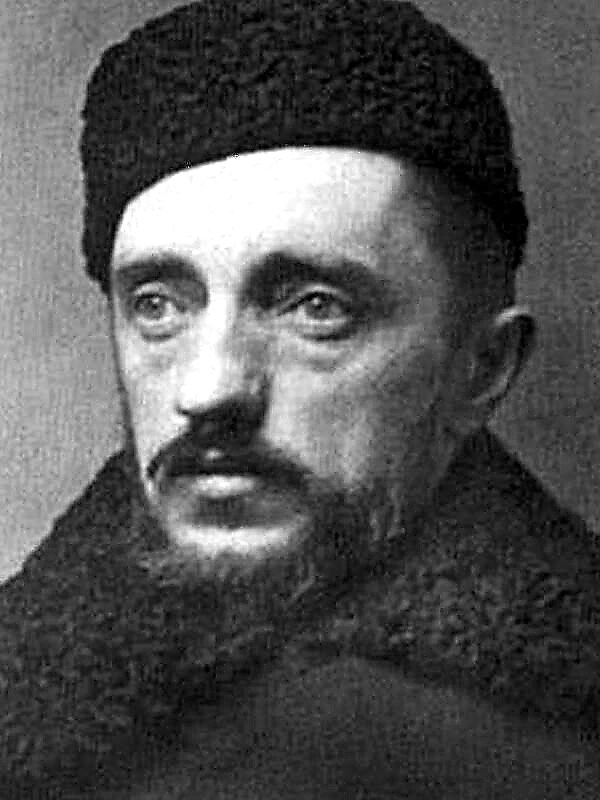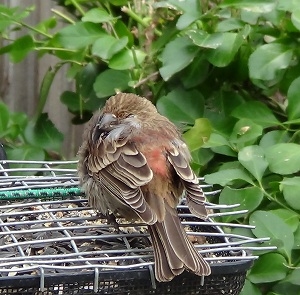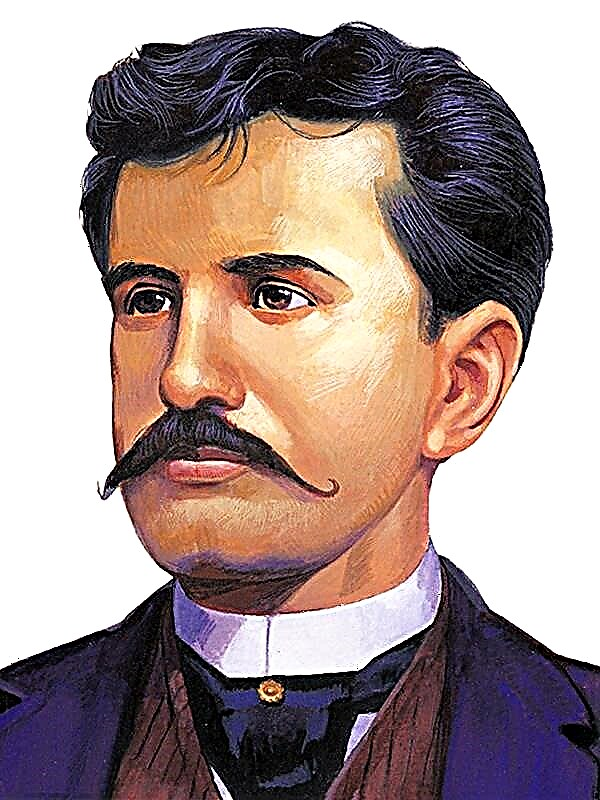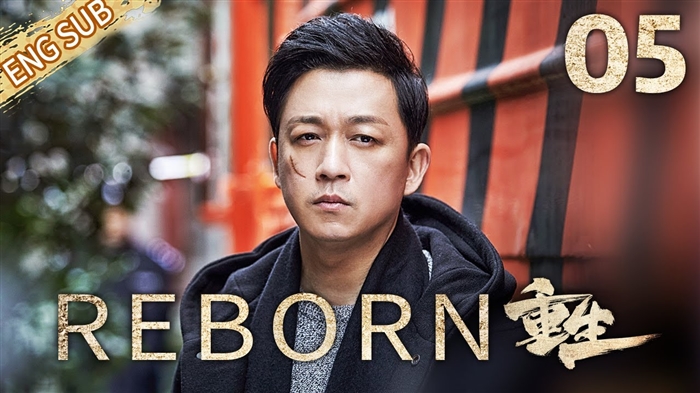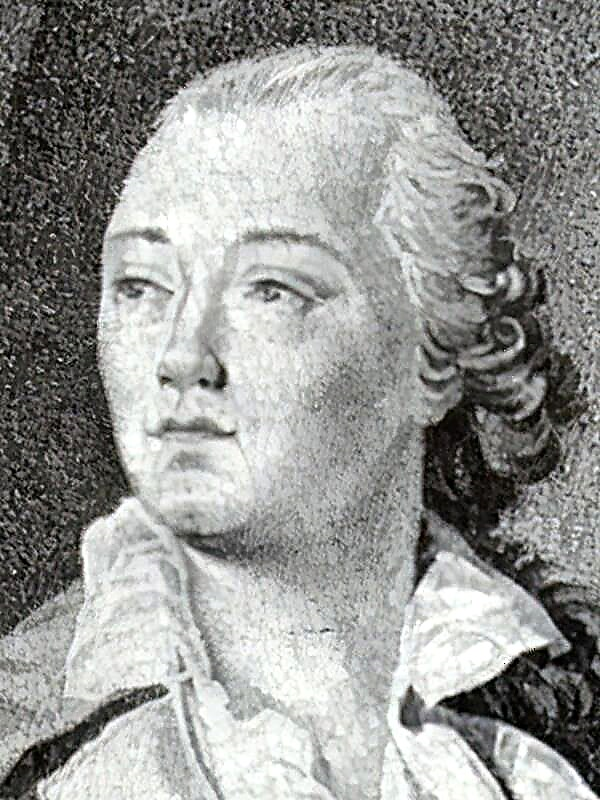Book one. Kurymushka
In Yelets, my hometown, all the old merchant names were double. Our first surname, Prishviny, was ancestral, official, and the second, “street”, was the Alpatovs.
I was born in 1873 in the village of Khrushchevo, the Solovyovskaya volost, the Yelets district, the Oryol province. The village of Khrushchevo was a small village with thatched roofs and earthen floors. Near the village was the estate of the landowner. In this big landowner house I was born. This small estate, about 200 acres, was bought by my grandfather Dmitry Ivanovich Prishvin from a nobleman, General Levshin. After the family partition, Khrushchevo went to my father, Mikhail Dmitrievich Prishvin. And so it happened that the Yelets merchant son, my father, became a landowner. On the estate, the father began to breed Orlov trotters, he himself drove them and more than once in Orel took prizes. My father was also a wonderful gardener, an excellent hunter and led a fun life. What a pity to me my father, who did not know how to reach something more serious than a sonorous life.
It happened once, he lost a large amount of cards; in order to pay the debt, I had to sell the entire stud farm and mortgage the estate with a double mortgage. My father did not survive the misfortune, he died, and my mother, a woman in her 40s with five children, left her life to work “for the bank”.
My mother, Maria Ivanovna Ignatova, was born in the city of Belev on the banks of the Oka. Working tirelessly from morning to evening, taking into account every penny, my mother at the end of her life nevertheless bought the estate and allowed all five of us to get higher education.
In our house, an old, made by serf hands, huge Kurym armchair has been preserved. No one knew why it was called that. They said that as a boy I was very much like a chair, but what it was like - no one knew about it. Often I thought, sitting in this huge chair. I thought that each of us has a life like a shell of a folding Easter egg. Sometimes everything lived begins to fly off like shells, and a little boy Kurymushka comes out at the bedside of his sick father. Father made a sign with his only healthy hand, and his mother immediately gave him a sheet of paper and a pencil. He drew some unusual animals and signed: blue beavers.
That night everyone ran around with fire, pounded, whispered. In the morning, Kurymushka found out that his father had died. From all the conversations, Kurymushka realized that some Bank had seized his mother, and she would work for him; it’s still not good that he is an orphan, that “we are merchants” and that the land will be transferred to the peasants. Only the blue beavers were good.
Mother always rises to the sun and goes into the fields. At dinner, she sits tanned and powerful, eats and talks about business with the headman Ivan Mikhalych. In late autumn, when it begins to get dark early, the time comes for guests. Neighbor Sofya Alexandrovna and Aunt Dunechka often visit their mother. Kurymushka puts together fairy tales about them.
It seemed, to Kurymushka, three suitors from Sophia Alexandrovna, two good, and one Mad. The elder ordered Sofya Alexandrovna to go for the good, but she went for Mad. The mad master was an atheist, but Kurymushka did not know what this meant. Sofya Alexandrovna wanted to leave Madden, but the old man ordered to endure. She tolerated and obeyed the old man in everything.
Another tale was about Dunechka. One of my mother’s brothers had a boy named Garibaldi. He lived in a big house with Dunechka. When Garibaldi became big, he rebelled in this house and left. His sister Dunechka left with him. It was impossible to find out where they had gone. For some reason they hated the king, such a good, liberator of the peasants.
There was a peasant Gusyok in the village. He often stomped in the front and begged his mother for his compatriots. Mother gave land, but it did not bring any benefits. Guska had a dream: to catch a white quail and sell it to merchants for a lot of money. But although he spent all his time to catch quail, he came across only gray ones. Even Kurymushka had a chance to hunt with him.
When guests come to the estate, the feral brothers Kurymushki, gymnasium students, scatter through an abandoned garden. Kurymushka also needs to run away from the guests, otherwise one cannot avoid the beater from the brothers for a separate joy. Once the secret desire of Kurymushka came true - the guests captured all the children, and they sat at the table, like ruffs tied to the gills. Near Kurymushki there was a dish with dried pears. He stole one and pocketed it. Brother Kolya noticed this and began to force Kurymushka to carry different things for him, threatening to tell everyone about the pear. Once even the two-maned had to be pulled out of the mother’s wallet. Every day, the power of the secrets of the dried pear grew, and then another misfortune arrived.
Brothers beat with sticks the largest priest goose to roast it at the stake, like Robinson. They disappear on the "mischievous path" leading through wheat to no one knows where. Kurymushka - secretly behind them. Wheat from all sides, like a forest, and the big Blue from above looks and sees everything. It got scary. Kurymushka decided to join the brothers - whatever happens. As he began to approach, when suddenly one of the brothers dropped the gander. The goose hit the ground loudly - and how it screams. Kurymushka jumped into the wheat and ran, leaving behind a wide road. On this road a bloody gander followed him. Kurymushka was sure that it was Blue who punished the villains and let the gander in. On the run, he read all the prayers that he knew until he got out of wheat. It did not occur to Kurymushka to make a secret against the brothers out of a bloody gander. He only realized that there are big secrets that remain with oneself, and there are small ones - they go outside, and people torture each other with them.
Once General Kh. Levshina and her daughter Masha came to Khrushchevo and asked for permission to go around the estate where she had lived for many years. For Kurymushki, the girl became a fabulous beauty, Marya Morevna. Masha was left to stay and immediately tamed wild gymnasium students, and Kurymushka saved the secret of a dried pear.
Once mom hired a new groom, Ivan. He was so scary that even Maria Ivanovna was afraid of him, and Kurymushka thought for a long time: is it really Balda. Ivan was constantly doing something nasty with the maids on the stove. Kurymushka thought that this was his terrible secret. They also said that Ivan was the spitting image of Alexander Mikhailovich, the Mad Madman. One winter evening there was a rumor: the king was killed. Ivan said that now they would cut the gentlemen and dismantle the land. Then the dead man arrived and took Ivan somewhere.
Bright day has come. At home they said: "Today Masha will come." Sofya Alexandrovna said that Masha is expansive and she needs to go to the old man and learn to be humble. Kurymushka understands these words in his own way. Sofya Alexandrovna wants to give Masha to the old man. Now the elder seems to him to be Kashchei immortal. But he will tell everything to Marya Morevna and Kashchei will not give her back.
Mother gathers guests. This time they expect the Mad Madman himself. Sofya Alexandrovna brought him to the old man, and he changed a lot. At lunch, conversation began about the king, but Dunechka did not like it: she also did not like the new king. A heavy silence hung at the table, as if Kaschey had bound everyone with his chain. To break this chain, Kurymushka loudly asked why everyone is talking about Ivan: spilled Alexander Mikhailovich. As if something had broken at the table, and Kurymushka was sent to sleep. He did not sleep at night - he regretted that he could not break the Kashcheyev chain. Then he made his way to Marya Morevna, told her about Kashchei and quietly fell asleep in her bed when the big Blue entered the room.
Kurymushka became a gymnasium student. He was settled in a guesthouse by the good German Wilhelmina Schmol. A wave caught Kurymushka and threw it on the very back desk, next to the gymnasium, a second-year student named Achilles. He immediately told Kurymushka about teachers. The director is a fair Latvian. For him, the main thing is tidiness in clothes. The inspector loves to read Gogol’s funny stories and he laughs first. Laughter goes in the classroom, as in a monkey forest, for which they called him the Monkeys. Goat, a geography teacher, is considered crazy, with him - how lucky. The worst math teacher is Cow Death. If he set the unit for the first time, that will be the unit all year, and the student will be called a cow.
Kurymushka became a cow in the first lesson of mathematics. But he was engaged in geography with great pleasure, and Goat said that something would come of him, maybe a great traveler. Kurymushka thought: what it feels like to be a traveler, and decided to go to Asia in search of a country where blue beavers live. To this feat, he knocked out two of his friends: Achilles and Sasha Rurikov, nicknamed Rurik. After careful preparations, the expedition hit the road and lasted three days. Travelers Krupkin returned to their homeland. During the expedition, travelers were heroes in the eyes of all the city’s gymnasium students, but when they were brought back, they long mocked Kurymushka in the gymnasium. As they went for the beast and kept repeating: “I went to Asia, came to the gymnasium”.
Year after year passed. Deep in my soul, a country of blue beavers was sleeping, as if covered with ashes. And so, when Alpatov’s blond hair began to curl in rings and a little tendril was outlined, when all classmates began to dream of dancing in a female gymnasium and write verses to Vera Sokolova, as if a volcano had exploded, and everything went off the beat.
Against the fourth grade, where Alpatov studied, there was a physical office. Once he looked at the amazing cars, and one of the senior students, Nezgovorov, spoke to him and gave him a book on physics. Gradually, Alpatov entered the circle of high school students where they read prohibited literature. There Alpatova was called Cupid because of curly hair. So that they would not call him that, Alpatov cut his hair baldly, and even rejected Vera Sokolova.
Soon Alpatov decided that he needed to find out about the last, it seemed to him, unknown and big secret. There was a whole group of students in the class, led by Kalakutsky, they knew everything about it. Alpatov directly asked him about this. Kalakutsky agreed to take him to his friend, Nastya. “Nastya loves boys, she will treat you lively,” said Kalakutsky, “only you need a drink for courage.” On a hare path, for free, he led Alpatov to Nastya. On the way, he said that the Hare also goes here, but the Goat does not, he is with himself. Nastya turned out to be a large porcelain woman with bright spots on her cheeks. Alpatov was very scared, vodka did not help for courage, he ran away. All night he had nightmares about the Hare and the Goat.
The next morning, Alpatov went to the gymnasium with a vague decision to start his life in a completely different way. The first was a geography lesson. Seeing the Goat, Alpatov remembered what he had been told about him. Misha became disgusted, he began to be rude to the Goat. In the end, Alpatov was expelled from the class, and then from the gymnasium.
Uncle Kurymushki, a wealthy Siberian merchant and steamer Ivan Astakhov, appeared in the sister's house whenever any troubles occurred. He appeared this time. Through a dream, Kurymushka heard elders talking. They talked about Guska, as if he, like Adam, had been driven out of paradise to plow, but the landlords took all the land. They talked about Marya Morevna that she lives in Florence, in some family, washes floors, washes, cooks, teaches children, and they worship her there. And then my uncle offered to take Kurymushka with him to Siberia, to Asia. Uncle Ivan has always been an example of luck and luck in the family, and his mother hoped that he would make a man out of his son. Kurymushka himself was glad that he was finally going to Asia.
At first we traveled by fast train. Uncle, who always studied something, bought at the station in Nizhny Novgorod a large encyclopedia of Brockhaus and Efron and forced Kurymushka to read aloud the article with the letter “A”. Then they moved to the ship. They sailed along Kama, then by train - through the harsh Urals. And finally, there is a pillar, on one side of which is written: "Europe", and on the other: "Asia." Then sailed on the ship "Ivan Astakhov." The steamboat was carrying immigrants, descendants of the second Adam, who did not get land. The old god was bored with the complaints of the first Adam, and he created another person. The second Adam also sinned and was expelled from paradise by sweating his face to cultivate the land. Only God forgot that the land was already occupied, and now the new Adam wanders in search of free land, but does not find anywhere.
Steamboatman Ivan Astakhov built himself a commander of a Siberian punks, a two-story house with a tower, huge and gloomy, unlike anything else. Downstairs there are twelve rooms and upstairs as many, on the tower - a spyglass. Ivan Astakhov lived alone in this palace, only a trained footman Alexander walked around the house in silent shade.
Uncle got Alpatov to the gymnasium. It takes two years. The first is Alpatov in the gymnasium. He is very proud, everything is difficult for him, and therefore he is lonely. Everything goes to achieve the first, and among other students an interesting, mysterious and inaccessible life develops. There was a group in the gymnasium, the director was its secret leader. Nikolai Opolin, a dark-skinned and strong young man, managed to feed his family and be in the first students. The son of the director, Lev, became a real scientist. Popovich Fortifier, a novice philosopher, was transferred from seminary for freethinking. There was also a Ukrainian, a bummer, a new politician who knew best. Semyon Lunin, the poorest in the class, fed his family and studied statistics. This company was seated in a classroom nearby; they also did not part in breaks. No matter how Alpatov tried to join them, nothing came of it, because Mikhail was the nephew of the richest merchant in the district.
A rumor ran through Siberia that the mighty and adamant Ivan Astakhov, bringing bread and salt to the heir to the Russian throne, was scared, did not finish his speech and dropped his silver dish at his feet. Finally, Astakhov himself appeared. Michael had never seen his uncle like that. Now the head of the Siberian punks met everyone with enthusiastic stories about the heir. Having heard about this, the director of the gymnasium came to Astakhov and immediately stopped everything. Seeing the director through the window, Misha went down the stairs to listen. It turned out that the director is creating a school of people's leaders in the gymnasium. Alpatov was stunned. For three years he spent himself on unnecessary achievements, and they were preparing for a great cause. And again he is the second Adam without land. Two weeks later, Alpatov came to his uncle to say goodbye: he completed the course and left for Russia.
The Alpatovs died an old nanny, this event changed all the plans of Maria Ivanovna and even threatened to upset her anniversary. During this time, Maria Ivanovna bought the estate and updated everything. Throughout the province, the glory of a wonderful mistress went about her. From the very first days after the nanny’s death, it turned out that she had the whole household, and only thanks to this, Maria Ivanovna could properly conduct the estate. She tried to shift part of the household to her eldest daughter, Lydia, but she was completely unprepared for this, and they constantly quarreled. Maria Ivanovna did not know what to do with her daughter - to send to courses or to marry.
Soon after Easter, Maria Ivanovna received a letter from Misha’s son that he graduated from high school, but did not want to serve with his uncle, but would go to the Polytechnic and become an engineer.
In the end, Maria Ivanovna decided to divide her entire household between the children. She wrote to them, and the sons began to come together. The first came the eldest son Nikolai. He was an unusual couch potato, dreamed of settling somewhere in a remote town and fishing all day. Soon a beautiful medical student, Alexander, came alive and gypsy, and then the future judge Sergey. The last was Michael. Mother asked everyone what to do with Lydia, but they could not advise her.
Alpatov went around his native places, hunted quails with Gusk and looked at the school to Dunechka. In the city he met Efim Nesgovorov.He was a member of an underground organization, where Alpatov joined. Misha told Yefim about the school of people's leaders, and he immediately became interested in this idea. At the head of the organization was Danilych. Misha was instructed to translate Woman and Socialism from German Bebel.
Alexander was going to marry the poor noblewoman Maria Otletaeva. He completely changed, became a stranger, spoke with enthusiasm about his future relatives, and this very tormented Maria Ivanovna. Misha has also changed. He considers himself an obstetrician of history; he must cut the umbilical cord connecting man and God and free the world from the chain of chains.
The second book. Nuptial flight
Maria Ivanovna heard the news that Misha was arrested and imprisoned. At first she was very excited, but then gradually calmed down. Many guests gathered for Maria Ivanovna’s anniversary. The Otletaevs brought with them their distant relative Inna Rostovtseva. By evening, Maria Ivanovna persuaded Inna to stay with her. She saw Inna a Turgenev girl.
Alpatov’s case was investigated by a companion of the prosecutor from St. Petersburg, Mr. Anatsevich. It occurred to him to collect introductory requests from students from all higher educational institutions, to compare handwriting with those documents that were found during the search, and so establish the identities of the leaders of the "school of proletarian leaders." Mikhail Alpatov was arrested at the very beginning of the investigation. In the courtyard of the prison to which he was brought, a real wild crane named Fomka nursed. His wing was broken, and he lived here for the second year. Alpatov was put in solitary confinement No. 27. Most of all, Misha was depressed by the constant observation of him through the peephole in the door. In order not to lose his mind, Alpatov invented for himself “as if a journey” to the North Pole, where Kashchei the immortal sits, growing ill with gold. Misha calculated how many diagonals of the camera would be needed for the whole trip. It was an inner journey to replace the present.
In prison, political had dates with girls not known to prisoners as brides. Sometimes even marriages were made.
Overseer Kuzmich liked Alpatov, and with his help he managed to move to a lighter cell. From the window you could see a huge tree and the Crane Fomka. From time to time, Anatsevich came to Alpatov, persuaded him to repent, promised a mitigation of punishment, but Misha did not give up. Time slowly creeps, like a prison wool blanket. Snow.
When the day began to arrive, Misha received a letter from the “bride” Inna Rostovtseva. From the letter it became clear that he would be released after Easter, and he should go abroad, where he would meet with Inna. The holiday of spring of light has come. Alpatov came "bride." She entered the dating room under a thick veil and stood on the other side of the bars. He never saw her face, but remembered his voice.
Alpatov fell into longing. Once, he struggled to punch a wall with his fist in order to replace physical pain. From behind the wall he was answered with a knock. It was Yefim Nezgovorov. They began to talk using Morse code. Then they noticed it, and it was all over.
One clear spring day, a flock of cranes began circling over the prison. Fomka flew with them.
After Easter, Alpatov was released. The gendarme captain ordered him to choose a city for three years. Michael pledged to go abroad in a week. Swinging, with a huge knot on his shoulder, Alpatov approaches the gate and the guard releases it.
Mikhail moved to a foreign carriage in Verzhbolov and rushed to Europe. On the way, he met Nina Belyaeva. She, like Inna, graduated from Smolny and now went to study in Germany. Alpatov did not realize that she was a close friend of Rostovtseva. Nina liked Mikhail.
Alpatov arrived in Berlin and settled in a cheap apartment with metalworker Otto Schwartz. Schwartz was a Social Democrat only because it was beneficial to him. This did not stop him from bowing to Emperor Wilhelm.
Wanting to find Inna, Alpatov submitted a request to the address table. Soon a reply came with an address. It was still early for the visits, and Mikhail decided to go to the university first. There Alpatov tortured the clerks for a long time with certificates, wanting to find out which faculty Inna had registered for, but her name was nowhere to be found. Finally, he decided to go to Inna, but she was no longer there: an hour ago she left for Jena. Alpatov rushed after her. Jena is a small city, and all foreigners stayed with Frau Professor Nipperdai. Inna Alpatov again did not find, but he was described in detail her further route: first Wartburg, and then Dresden. Inna forgot her white shawl from the professor and Alpatov took it with him as a talisman.
He chased Inna through Green Germany and lagged behind by two days, then by a day. On the dock at Elba, he was informed that the Russian maid of honor yesterday drove to Dresden, accompanied by a young Swede. Alpatov decided that in Dresden she would definitely go watch the Sistine Madonna.
The picture was as big as the ocean. Alpatov for a long time could not tear himself away from her. In the hall where the picture hung, Mikhail unexpectedly met Yefim Nezgovorov. He admitted to Alpatov that he was drawn to destroy the Madonna, for him she was an idol. Efim reminded Alpatov of duty, but Misha this man became unpleasant. They broke up.
On the same day, Alpatov met Nina and invited her to his hotel to drink tea. There she accidentally saw Inna's white shawl. Misha found out that Rostovtseva and Belyaev were friends, and that Inna had left for Paris with a young Swede.
Alpatov surrendered to the influence of Yefim. Nesgovorov suggested Misha go to Leipzig to study and gradually organize a Marxist circle there in the Russian colony. Alpatov was delighted with this proposal, promised to work as in his homeland, losing sight of the fact that he himself was already different. After this pursuit of an elusive bride, Alpatov wanted to expel all kinds of whims from his head with great work.
At the University of Leipzig, Alpatov signed up immediately for all the courses he was interested in. He was not one Russian, there were many. Aksyonov, a beautiful baroque blond, was from Simbirsk. A tall brunette with black burning eyes, similar to a French hypnotist, turned out to be Ambarov from Petersburg. Chizhov from Yekaterinburg is a strange man in a blue shirt under a gray jacket without a vest. With fiery red hair and frequent freckles came Rosa Katzenellenbogen from Pinsk. There were still many Russians, and everybody wanted to study philosophy.
At the very first meeting of the Russian colony, Alpatov realized that it would not be possible to organize a circle here. He went out into the street depressed and restrained. On the boulevard, Misha met Ambarov. He admitted that only in Leipzig he had three wives, and before that he lived in Rome, in Paris, in Zurich. Ambarov said goodbye to Alpatov and asked to visit him in the technical laboratory, where he works daily.
Alpatov became interested in chemistry and also began working in the laboratory. His neighbor was Rosa Katzellenbogen. Ambarov taught him a lot.
It is very possible that Alpatov was in trouble because of the volume of the works of Friedrich Nietzsche, which he once bought in a bookstore. Having learned this book, Alpatov could no longer listen to philosophical lectures and write everything in a notebook. No, real knowledge flies like a meteor, and Alpatov rushed to work at one point only, abandoned all the lectures and did only analyzes in the laboratory. A month later, he far ahead of Rose, but chemistry is given by measured labor. Alpatov met with higher mathematics, and now he sits above the integrals day and night, to which he is extremely incapable. Rose easily catches up with him. In surprise, he asks Rosa what her success is. She calmly explains that she is studying chemistry for pharmaceuticals and will eventually become a pharmacist at Pinsk pharmacy.
In the evening, Alpatov walks somewhere vaguely along the boulevard and again meets Ambarov arm in arm with his new wife. They descend into one of the basement beer bars and sit by the white marble table. There was a conversation about women. Ambarov turned out to be a satiated man, and he took up chemistry because he was interested in explosives - only they give real power. This frightened Alpatov - he recognized a madman in Ambarov.
At that time, one heavy bursh from Concordia so brazenly watched the swing of the leg of Ambarov’s third wife that Alpatov could not stand it and showed him his tongue. Bursch challenged him to a duel. Alpatov wanted to apologize, but then decided that it was embarrassing: then all Russians would be considered cowards. For several days Misha visits a fencing teacher. The fight took place in a large, well-ventilated room, fought on the schlegers until the first blood. It was not a duel, but rather a rite to which the Germans took very seriously. After the duel, a friendly drinking party took place. Alpatov was stunned by the stupidity of everything that was happening. Unable to even laugh, he quickly began to drink beer. Alpatov woke up in the morning on someone's wide double bed. A young woman was sleeping next to him. Alpatov peered and hardly understood Ambarov’s cruel joke: his very third wife was lying next to him, because of which there was a duel.
Humiliated and crushed, Alpatov creeps out into the street. Everywhere a big movement, everyone is preparing to celebrate the New Year. Alpatov recognizes Rosa Katzenellenbogen in the crowd, and they go together to have breakfast in a small cafe. Under the influence of what happened, Alpatov almost asked Rosa to marry him, but woke up in time. It was Rosa who prompted him to become an engineer for draining swamps, a peat master.
A guest was waiting for Alpatov’s house - Efim Nezgovorov, the same Efim, who was more dear to him in his homeland, who did not recognize anything but the revolution. Nesgovorov realized that Alpatov did not fulfill the instructions, and between them it was all over.
For several years Alpatov lived in Leipzig, in the family of the widow of a famous composer. The swamp science course was almost over. Alpatov had to make a red circle as a compass on his graduation project for a hydrotorf machine to emphasize his own invention. In the drawing room there was no necessary carmine for this, I had to go home after him. On the way back to the drawing, Alpatov saw a summer round cloud in the sky at the end of the street - the first sign of spring. This cloud reminded Alpatov of his spring of light, it called to break loose, fly into the blue world. He sat in an omnibus, going towards the cloud, in which, by a strange chance, only young girls were sitting. One of them called out to Alpatova. He recognized the voice: it was Inna.
They spent together all day. Inna told about the Swede: he had an upset stomach, she helped - she bought medicine and broke up with him in Brussels. The next morning, Alpatov woke up as a child, ready to hug the whole world with love. Together with coffee, they handed him a letter on a tray. “I'm not the one you love: you composed a bride for yourself. And I, too, cannot love you one day. Farewell. I'm leaving at night, ”was in this letter. Alpatov puts the last circle on the graduation project and buys a ticket to Moscow. Then another letter comes: she is in Paris, repents and calls him to her.
In Paris, the carnival, which happens there in the middle of the post. They meet in the Luxembourg Gardens at the Medici Fountain, and again spend the whole day together. Inna admitted that she was afraid of her mother - she would not accept Mikhail. Inna's mother is a born countess, and her father is from merchants. For her sake, he changed his surname (he was Chizhikov, became Rostovtsev), abandoned science, dropped out of university and became a real adviser in the forest department. But in spite of everything, he remained for her Chizhikov. After much torment and hesitation, it was decided: Alpatov was going to Russia to arrange his position, and she was completing her studies at the Sorbonne and waiting for him.
Alpatov stayed a bit on the estate of his mother. Goose dies at this time - he never caught a white quail. Misha tells his mother that he intends to marry Inna. Maria Ivanovna was very happy about this news. Before going to St. Petersburg, Alpatov wanted to stay in Moscow for several days. There he was immediately called to the police. The colonel who was entrusted with this business turned out to be a good person. We agreed as follows: he will send a request abroad, and while he will go, Alpatov will have time to create a situation for himself in St. Petersburg.
In St. Petersburg, Alpatov appeared to Pyotr Petrovich Rostovtsev and asked to get him a living job. Rostovtsev promised him a place in the department. It was necessary to wait for the place, and Rostovtsev took Alpatov as his secretary, to work on the encyclopedia of flora and fauna. They worked at night, and during the day Alpatov wrote long crazy letters to his bride. He did not admit to Rostovtsev that he was in love with his daughter.
Inna did not write for a long time, and then a letter came from her, which was for Alpatov a glass of poison. The letter was: “We speak different languages, we are not on the way. This time I firmly and decisively say: no. ” It turned out that the world "instead of Inna" does not exist. Alpatova was suddenly drawn to nature, wanted to see tits on birches, and he went, not seeing anything around him. Behind him, without losing sight, was a small man with a bag of pine nuts. Alpatov noticed the little man only when he went out of town, and suddenly realized: he was sent for a filler, and the most stupid one. Stretching out his hand, Alpatov happily squeezed his neck, and then pushed him behind with his knee and ordered him to run away soon. He runs away without looking back.
After a seven-day wandering in the vicinity of St. Petersburg, Alpatov thought up: to open himself to his beloved father, Inna, and go together with her. Returning to St. Petersburg, Mikhail with horror learns that Peter Petrovich has died. He was buried at the Wolf Cemetery, among scientists and writers.
Some time later, Alpatov returned to St. Petersburg. He again received a letter from Inna and hoped for reconciliation. On the train, a stranger spoke to him. He called himself Pavel Filippovich Chernomashentsev, a longtime acquaintance of Maria Ivanovna. Chernomashentsev knew about Alpatov’s life to the smallest detail and was, as it later turned out, an agent assigned to Alpatov for surveillance. After waiting for Chernomaashentsev to fall asleep, Alpatov left at the first station he encountered. At first he wanted to take another train and get to St. Petersburg, but suddenly he heard spring grouse singing in the forest surrounding a small station, and went to the sound. On the way, he fell down his neck into icy water and lit a fire to dry, and then threw all things that reminded him of Inna into the fire, lay on a juniper bush and fell sound asleep.
Found Alpatova local hunter Churka and led to the river. At that time the ice began to break, and Alpatov saw his own: dirty ice floes swam like the links of a broken Kaschey chain.
This ends the autobiographical novel "The Kashcheyev Chain". But it seems to me possible to tell here how Alpatov became a writer after he "went into nature."
The first person to leave a mark in my life was my mother. In this person I see, in a clean mirror, that my good motherland, for which it is worth living on the earth and standing up for her. After I met on my way the great wanderer Alexei Gorky. This was after the revolution of 1905. I told him that as a student, as a chemist, I went to the Caucasus to destroy phylloxera in the vineyards; I was then about twenty years old. I then joined the Marxists and became acquainted with the work of August Bebel, “Woman in the Past, Present, and Future.” Later, the “woman of the future” turned into Marya Morevna for me. Gorky called me a romantic.
Having told this conversation with Gorky, I ran ten years ahead of the time in which I felt the opportunity to become a writer. At that time I was a student in Riga, and after the Caucasus I came to work in the Social Democratic Party under the leadership of Danilych (Vasily Danilovich Ulrich). I tried to do the most, but I was extremely incapable of political work and suffered very much from my inability. In the Riga case, I was in prison and was in exile. After I managed to break out to Germany. My "romance" with German Social Democracy cracked there, and I set about studying.
Soon I found myself a zemstvo agronomist in the city of Klin, Moscow province. I went out and fell ill with an unknown mental illness. The roots of this disease were nourished by my painful and failed love for the disappeared bride. The secret of my illness was that I became afraid of sharp objects. Each time I saw a sharp object, I was drawn to grab it and use it. This was compounded by the fact that I had to trade braids, sickles, axes and the like. In the end, I wrote a confession letter and went to Moscow to the famous psychiatrist Professor Merzheevsky. The professor was leaving. He hastily read my confession, said: “Nothing special”, and with a quick movement pricked her like a beetle on a long needle to joke incoming papers. His advice was: take a bath at 27 degrees. Most likely, he understood my illness simply as a disease of growth. Brought to the extreme, I turned to the first neurologist who came across. A small man with red hair gave me a box of pills, refused money and promised: "In a month you will be healthy." And so it happened.
Once I was traveling from Moscow to Yelets. It was on one stop. It was difficult to wait for the train. Out of boredom, I took a sheet of paper and began to write some memories from my childhood. When I came to my senses, I realized that the greatest discovery had happened in my life - now I have nothing to fear from myself and my loneliness. Then I did not have the slightest thought that it would be possible to print it and live it.
Driving once in a cab, I remembered the house where my savior, a neuropathologist, lived. I decided to go to thank him. To my amazement, this turned out to be not a doctor - I then made a mistake on the floor. He just felt sorry that such a young man was tormented by trifles, and he gave me pills made from powdered sugar. I was cured by an ordinary optician.
From childhood I was taught that for great, real happiness, you need to put all your soul for friends and yourself to be left with nothing. But in a long life, it turned out that good friends, realizing a worthy person, themselves begin to serve him and pay for his good. So it seems to me that I, like the whole Russian man, am strong in this happiness!

